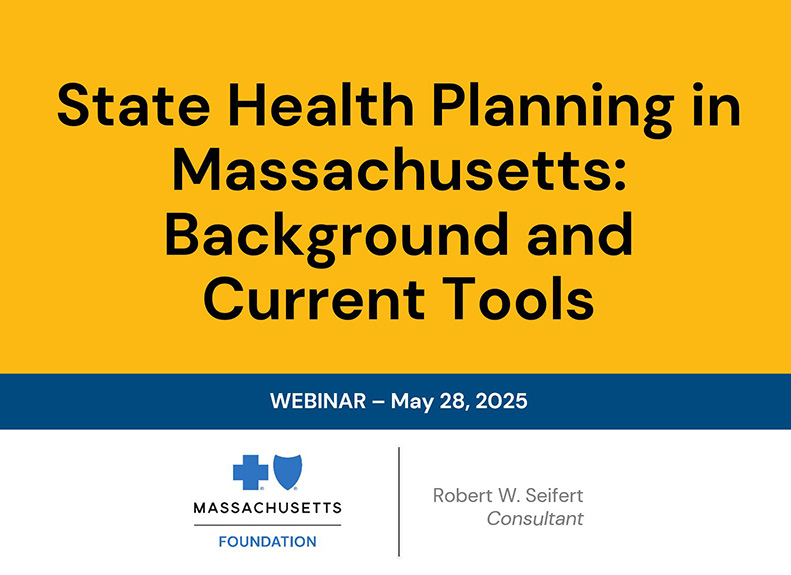A Focus on Impact: MassHealth and the BCBSMA Foundation
Event Recordings:
Main Event
Includes: Reflection on Past, Present, and Future of the Foundation; Presentation of Key findings from MassHealth Impacts Series; and Remarks by Marylou Sudders, Massachusetts Secretary of Health and Human Services
Breakout Session 1: MassHealth and the Behavioral Health System
Breakout Session 2: MassHealth and Schools and School-Aged Children
Breakout Session 3: MassHealth and Justice-Involved People
Foundation 20th Anniversary Timeline
Event Overview:
In 2001, when the Blue Cross Blue Shield of Massachusetts Foundation was established, almost 7% of Massachusetts residents (or 500,000 individuals) had no health insurance. During this time, MassHealth coverage and benefits were also being scaled back and rates of uninsurance were growing. Because of a collective cross sector effort that included consumer advocates, providers, insurers, employers, and the work of the Foundation, Massachusetts created a model of near-universal coverage, with MassHealth serving as the anchor for these successful reforms.
Fostering dialogue among stakeholders about MassHealth and promoting the development of effective policy solutions to address the challenges associated with this critical program and access to affordable coverage more broadly remains a key strategy in fulfilling the Foundation’s mission since its establishment. In 2021, the Foundation will continue to pursue solutions that create equitable access to coverage and eliminate barriers to care.
On Wednesday, June 30th the Foundation hosted a virtual event in recognition of its 20th anniversary. We reflected on the past, present, and future of the Foundation with Foundation leadership including: our President and CEO, Audrey Shelto, and members of our Board of Directors - Andrew Dreyfus, President and CEO, BCBSMA and first President of the Foundation and Manny Lopes, President and CEO, East Boston Neighborhood Health Center, and current Chair of the Foundation’s Board of Directors.
Our colleagues at Manatt Health Strategies then shared findings from a series of issue briefs commissioned by the Foundation’s Massachusetts Medicaid Policy Institute about the key role of MassHealth on the health and finances of its members, families, and communities, as well as on the wide variety of stakeholders and sectors outside of the traditional health care realm that benefit from the program. And we heard reflections about MassHealth’s role and future in these realms from state leaders including Marylou Sudders, Massachusetts Secretary of Health and Human Services, providers, and consumers.
Guests had the opportunity to choose between breakout sessions that focus on MassHealth’s impacts on:
- the Commonwealth’s schools and school‐aged children, teens, and young adults;
- the behavioral health care system, addressing how MassHealth provides coverage, access, and delivery of services across the full behavioral health care continuum; and
- justice-involved persons, describing how MassHealth supports re-entry into the community





